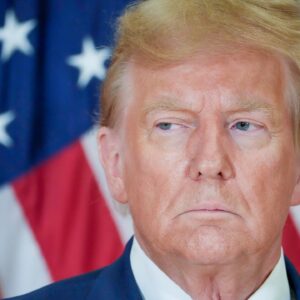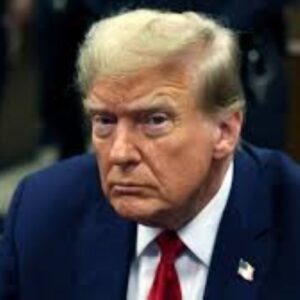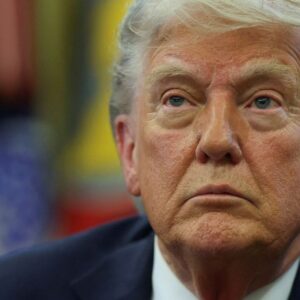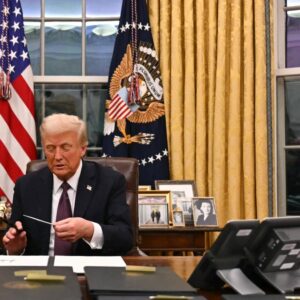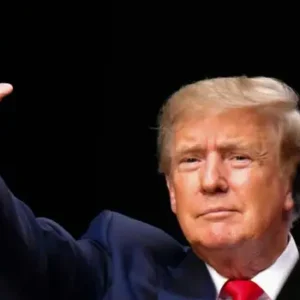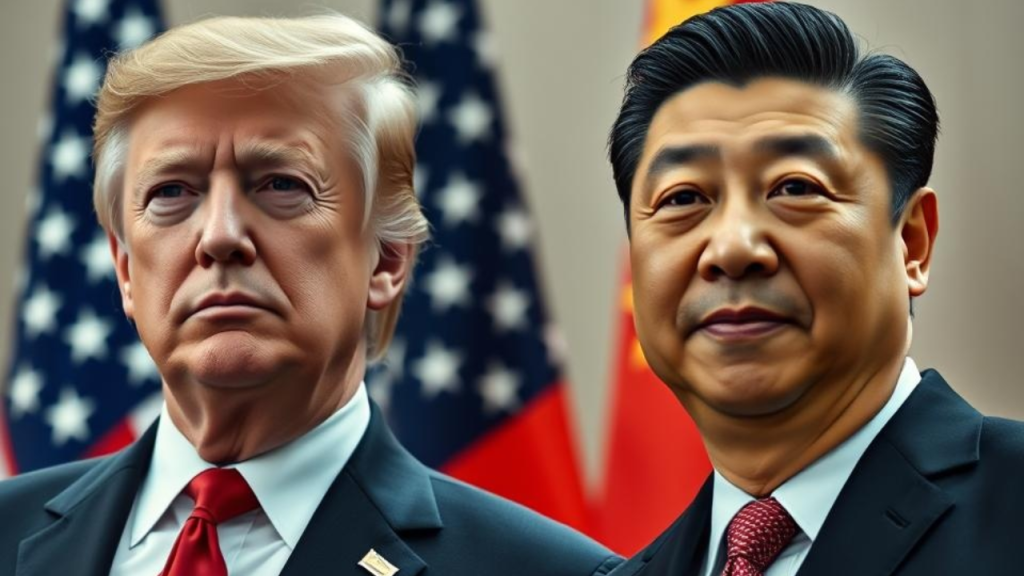
Trump Takes Action to Block China from Buying U.S. Farmland: A Strategic Move for National Security
In a world where geopolitical tensions between the U.S. and China continue to rise, one of the latest moves from former President Donald Trump has sparked significant debate and attention. The former president has taken action to block China from buying U.S. farmland, a decision that has major implications for both national security and the agricultural economy. The issue of foreign ownership of American land, particularly by Chinese entities, has been a growing concern for policymakers, with many arguing that it poses a potential threat to the nation’s food security and sovereignty.
This article will explore the rationale behind Trump’s actions, the broader context surrounding foreign land purchases in the U.S., the implications of such a move, and the political and economic ramifications for both the U.S. and China.
The Growing Concern of Foreign Ownership of U.S. Farmland
The issue of foreign ownership of U.S. farmland is not new, but it has gained considerable attention in recent years due to China’s increasing investments in agricultural assets across the globe. U.S. farmland is considered a strategic national resource, not only because it is critical for food production but also because it plays a key role in national security.
According to the U.S. Department of Agriculture (USDA), foreign entities own approximately 2.5% of all U.S. agricultural land. This figure includes investments from countries such as Canada, the Netherlands, and the United Kingdom. However, China has emerged as a key player, with Chinese companies and investors steadily acquiring agricultural land in the U.S. over the past two decades. While China’s overall share of foreign farmland ownership is still relatively small, the acquisition of large swaths of U.S. land has raised alarms among national security experts.
Some of the most notable purchases include vast areas of farmland in key agricultural regions such as Iowa, North Dakota, and Texas. In some cases, Chinese investors have even sought to buy land near military bases or sensitive infrastructure, which has led to concerns about the potential for espionage or influence over food production and supply chains.
Trump’s Move to Block Chinese Land Purchases
Former President Donald Trump has long been vocal about his concerns regarding China’s growing economic influence in the United States. In the context of farmland purchases, Trump has argued that Chinese ownership of U.S. land represents a serious threat to national security. His administration had already taken steps to limit Chinese investments in certain sectors, such as technology and defense, and now, he is turning his attention to the agricultural industry.
In his latest move, Trump has taken legal and administrative steps to prevent Chinese entities from acquiring U.S. farmland. This includes urging Congress to pass laws that would restrict foreign ownership of agricultural land, especially from adversarial nations like China. Trump has also called for more stringent oversight from the Committee on Foreign Investment in the United States (CFIUS), the government body responsible for reviewing foreign investments in U.S. assets.
In addition to pushing for legislative action, Trump has used his influence to rally public support for the idea, framing the issue as one of national security and economic independence. By positioning himself as a staunch defender of U.S. sovereignty, he is attempting to capitalize on growing public concerns about Chinese influence and the potential risks associated with foreign land ownership.
National Security and Economic Implications
The argument for blocking Chinese purchases of U.S. farmland is largely based on national security concerns. Some experts worry that Chinese ownership of U.S. land, particularly in rural areas with proximity to military bases, could provide the Chinese government with leverage over the U.S. food supply. With China being a global economic and military power, some critics argue that allowing Chinese entities to acquire significant portions of U.S. farmland could give Beijing the ability to manipulate the agricultural industry for strategic purposes.
In addition to national security risks, there are economic concerns tied to foreign ownership of farmland. The U.S. agricultural industry is a critical component of the national economy, and many argue that allowing foreign entities to control large portions of American farmland could undermine the interests of American farmers. This could also lead to a concentration of land ownership in the hands of foreign corporations, which could have a detrimental effect on local communities and small farmers.
By limiting foreign ownership of farmland, Trump is seeking to protect American agricultural interests and ensure that the U.S. remains self-reliant when it comes to food production. This move also aligns with Trump’s broader “America First” economic agenda, which prioritizes American interests over foreign influence.
The Political Debate: Proponents vs. Opponents
As with any contentious issue, Trump’s actions to block China from buying U.S. farmland have sparked a fierce political debate. Proponents of the move argue that it is a necessary step to protect national security, safeguard American farmers, and prevent undue foreign influence over a vital industry. They contend that the U.S. should not allow adversarial nations like China to have control over such a critical resource, and they point to China’s track record of using economic leverage to advance its strategic interests.
Supporters also highlight the potential risks of having foreign ownership in sensitive agricultural regions. For instance, large land purchases near military bases could give foreign investors undue influence over areas that are critical to national defense. The growing presence of Chinese firms in U.S. agriculture also raises concerns about intellectual property theft, cyber espionage, and the potential for economic coercion.
On the other hand, opponents of Trump’s actions argue that blocking Chinese investments could have unintended consequences. Some warn that restricting foreign ownership of farmland could lead to a reduction in foreign investment in the U.S. agricultural sector, which could harm the economy. Foreign investors often provide much-needed capital to American farmers and ranchers, particularly those in financial distress. Additionally, some critics argue that singling out China for restrictions could escalate tensions between the U.S. and China, leading to a trade war that could harm both economies.
Others suggest that the issue of foreign land ownership should be addressed through more transparent and fair regulations, rather than blanket restrictions. They argue that it is possible to safeguard national security while still allowing foreign investment in agriculture, as long as the proper safeguards are in place.
Broader Geopolitical Context: U.S.-China Relations
Trump’s move to block China from buying U.S. farmland must also be understood within the broader context of U.S.-China relations. In recent years, tensions between the two countries have escalated, particularly in the areas of trade, technology, and military competition. The U.S. has accused China of engaging in unfair trade practices, intellectual property theft, and military aggression in the South China Sea, while China has criticized U.S. interference in its internal affairs and foreign policy.
Trump’s actions regarding farmland are just one aspect of a larger strategy to counter China’s growing global influence. By taking a firm stance on foreign ownership of U.S. land, Trump is signaling his commitment to protecting American interests in the face of Chinese expansionism. This move also appeals to his political base, many of whom are concerned about the increasing economic and military power of China.
The Way Forward: What Does the Future Hold?
While Trump’s actions to block Chinese purchases of U.S. farmland may gain political traction, the legal and economic challenges to such a move are significant. For one, any legislative action to restrict foreign land ownership would require broad support in Congress, which may be difficult to secure given the political polarization surrounding the issue.
Moreover, foreign investors from other countries may view Trump’s actions as a signal that the U.S. is becoming increasingly protectionist, which could discourage future investments in the agricultural sector. The long-term economic impact of such restrictions remains unclear, and it will be important to monitor how this issue develops.
In conclusion, Trump’s move to block China from buying U.S. farmland is a reflection of broader concerns about national security, economic sovereignty, and foreign influence. Whether or not this action will ultimately be successful depends on a range of political, legal, and economic factors. However, it is clear that the issue of foreign ownership of American land is one that will continue to be a point of contention in U.S. politics for years to come.

